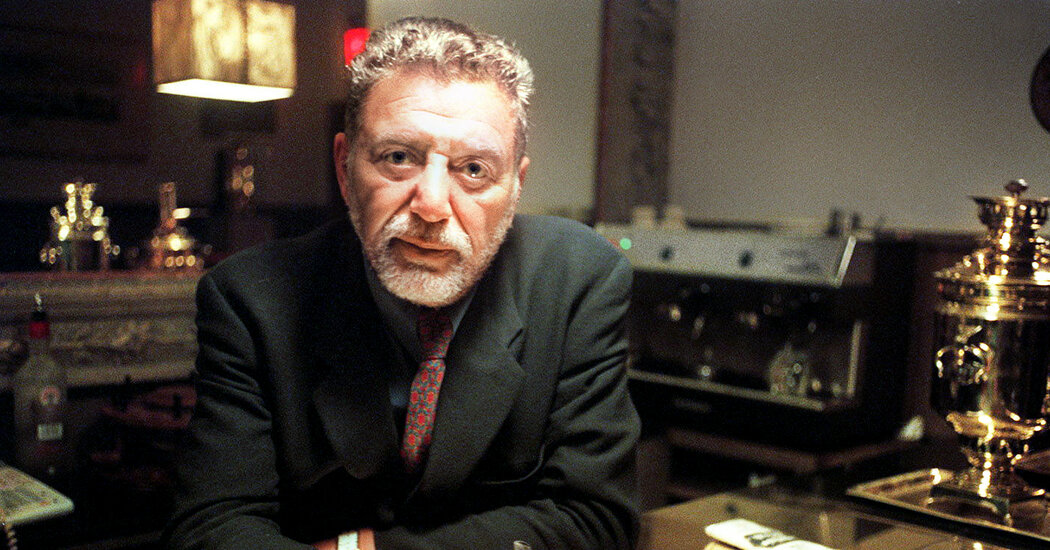
The Samovar’s most honored guest by far was Brodsky, another friend from Leningrad. It was he who bailed out the restaurant with money from his Nobel Prize for Literature and recruited Mr. Baryshnikov to help. Mr. Kaplan set aside a banquette for him: Table 16, in the back. The Samovar’s longtime pianist, Alexander Izbitser, a graduate of the Leningrad Conservatory, knew to play more quietly when the soft-spoken Brodsky was there, the easier for people to hear what he was saying.
Once Brodsky marked up the Samovar’s menu with his rhymes. (“You won’t be erring/With Russian herring” was one.) He also wrote of Mr. Kaplan in verse both serious and silly.
Winter! Tonight in NYC
It’s colder than the moon by far.
Dear vodka and sweet caviar
Should warm us up — where else to be
But Kaplan’s Russian Samovar?
Mr. Kaplan’s diplomatic skills were legendary, but there were limits. He looked on helplessly one night as Brodsky rebuffed an overture from the poet Yevgeny Yevtushenko, whom Brodsky blamed in part for his forced exile, believing Yevtushenko had been compromised by his ties to the Soviet regime.
For years, habitués and visitors inscribed entries — poems, prose poems, drawings, doodles — in the scrapbooks Mr. Kaplan kept. At an auction in Moscow in 2018, the Russian oligarch Alexander Mamut paid $230,000 for the collection, and a generation of Russian creativity was repatriated.
“Roman is our Rick,” the Russian writer Solomon Volkov once said, referring to Humphrey Bogart’s restaurateur in “Casablanca.” Rick rarely drank with guests, but Mr. Kaplan invariably did, plying them with his trademark homemade vodkas (coming in horseradish, cilantro, dill and various fruit flavors, among others). His penchant for picking up checks very nearly sank the place.
For someone who came close to starving during the wartime siege of Leningrad, running a restaurant presented unique challenges, like his horror over wasted food. The frostbite Mr. Kaplan suffered during the war left him with both a limp and impatience for pettiness. The Polish émigré writer Irena Grudzinka Gross recalled Mr. Kaplan removing his shoe once to show a condescending professor where his toes had been.


